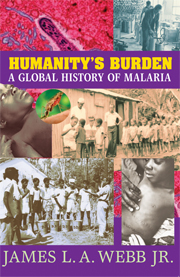6 - Africa Redux
Published online by Cambridge University Press: 05 March 2015
Summary
In the spring of 1944, the Allied Control Commission in Italy invited a Rockefeller Foundation team to determine what could be done to cope with the malaria epidemics that the Nazis had unleashed. Their answer was surprisingly simple and effective: In two trials on flooded lands, the Rockefeller group showed that a single spraying of a new insecticide known by its initials DDT could stop the spread of malaria for an entire season. DDT worked so well that by 1945 the Health Division of the UN relief organization decided to undertake a comprehensive DDT campaign to drive malaria out of Italy. In the immediate postwar period, DDT campaigns were also launched in Greece, Venezuela, and Ceylon. In 1946, the Rockefeller Foundation, inspired by its successful participation in the eradication of A. gambiae in Brazil, decided on an experimental program on Sardinia to eradicate the sole mosquito vector, A. labranchiae – and thus malaria – from the island.
DDT seemed like a miracle. The venerable Paris Green worked well as a larvicide, but it could not kill adult mosquitoes. The natural insecticide pyrethrum made from the dried flower heads of the chrysanthemum plants (Chrysanthemum cinerariaefolium and Chrysanthemum coccineum) was effective against adult mosquitoes, but it was highly unstable and quickly lost its potency. DDT killed adult mosquitoes, and it was a residual killer. It could stop mosquito transmission dead. In most areas of seasonal malaria transmission, two applications per year were enough.
- Type
- Chapter
- Information
- Humanity's BurdenA Global History of Malaria, pp. 160 - 187Publisher: Cambridge University PressPrint publication year: 2008



